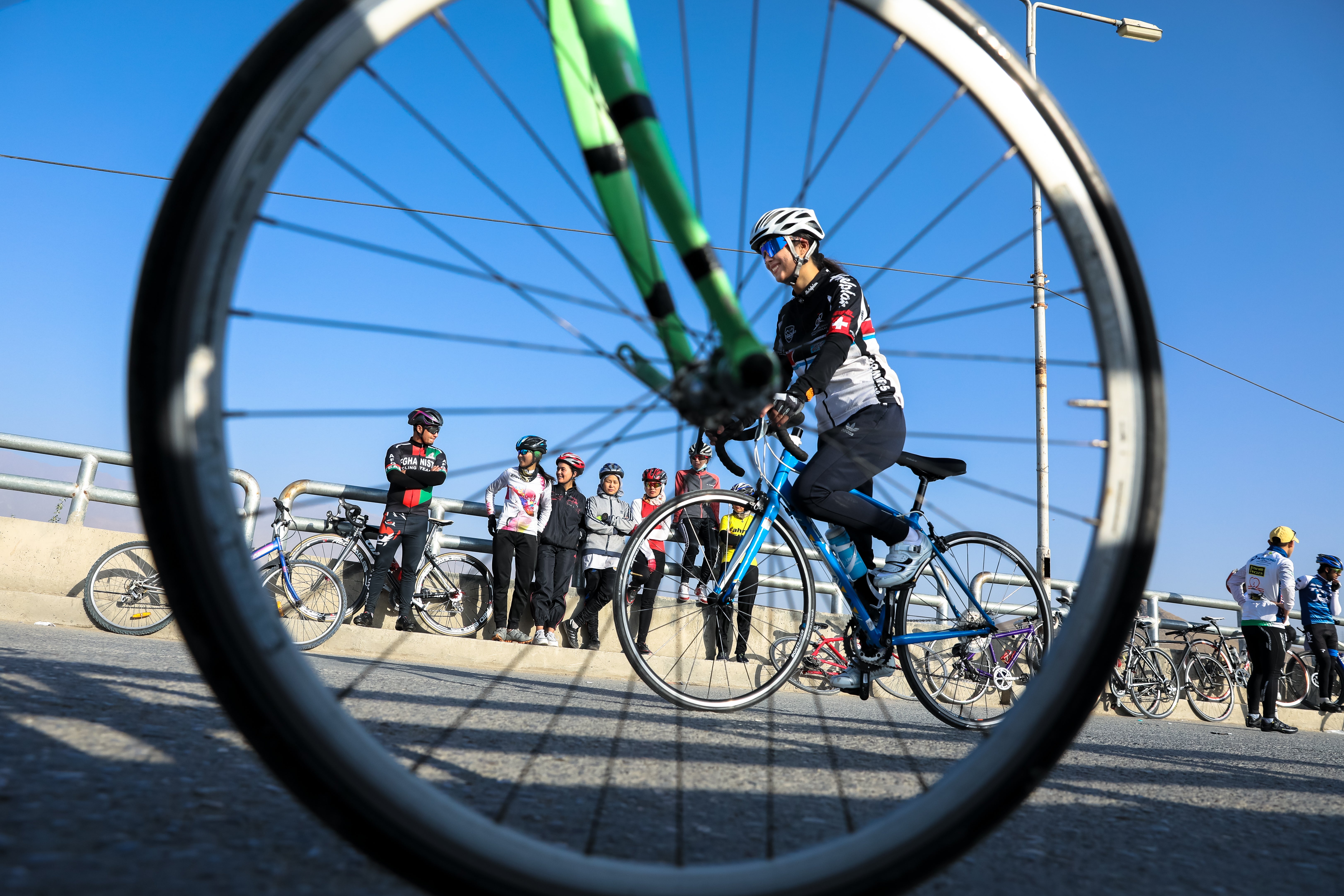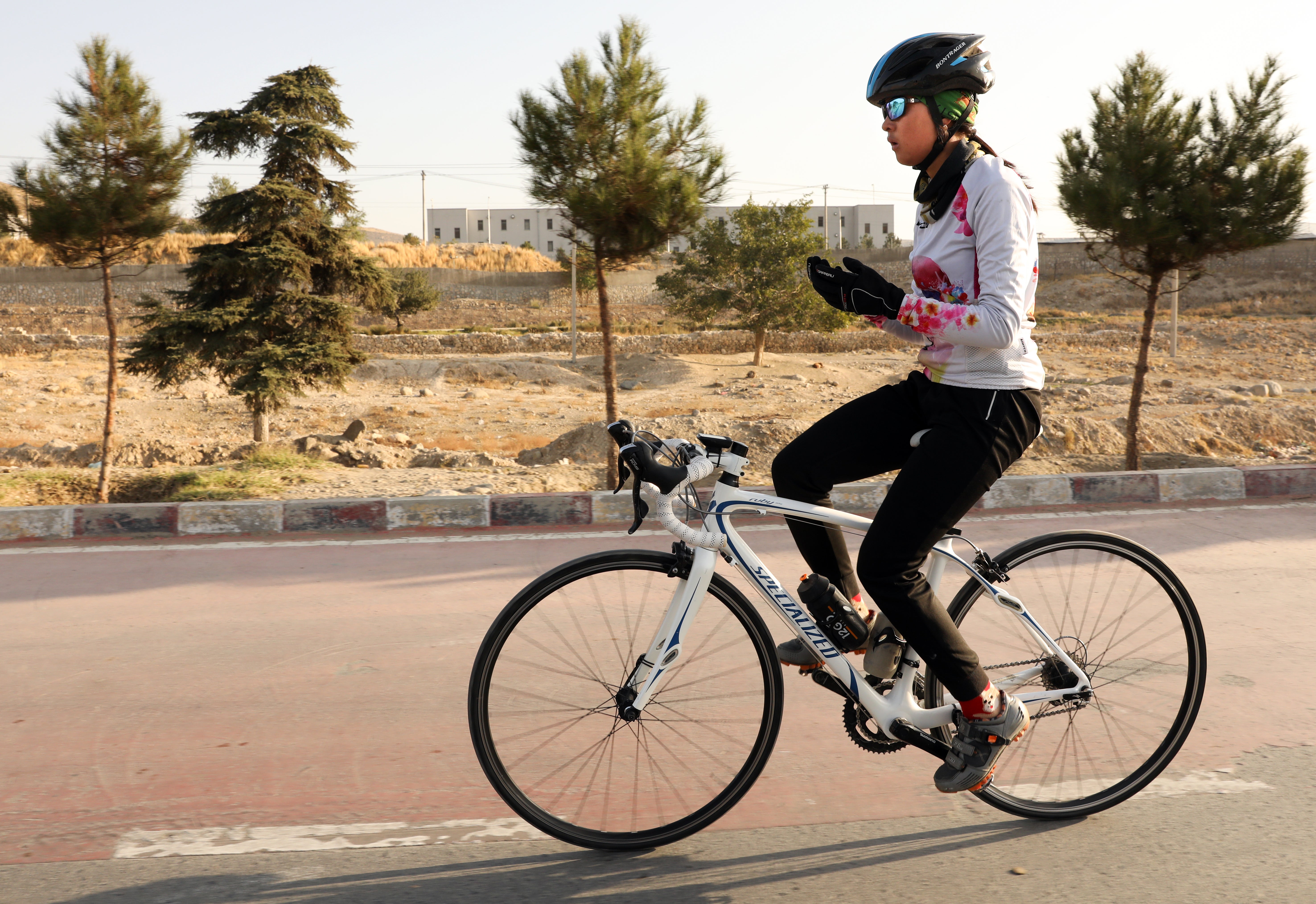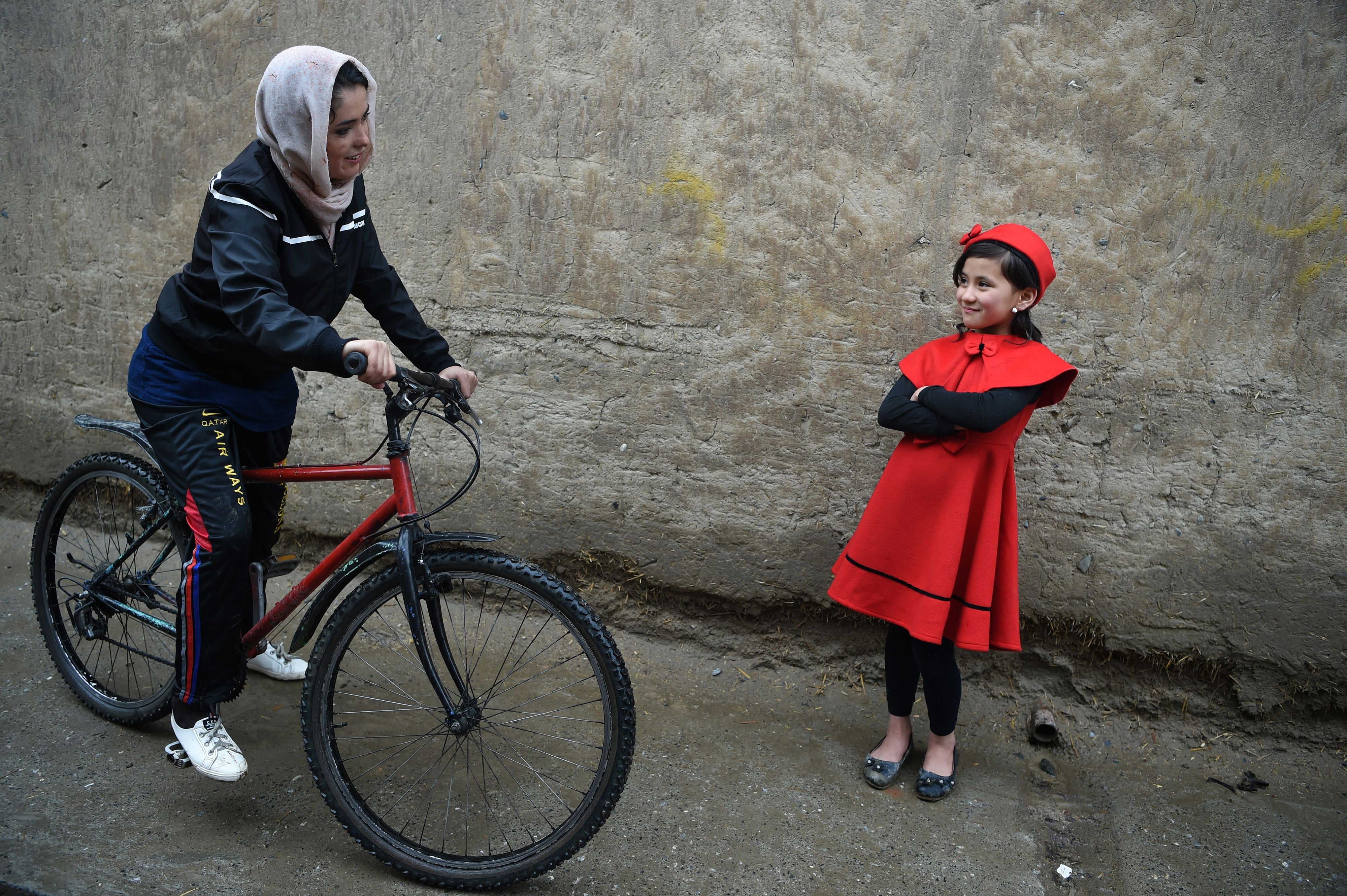Afghan women cyclists gear up for new life in Italy after fleeing Taliban
Dozens of female athletes from Afghanistan are set for a fresh start in Europe after six months in limbo

After risking their lives to flee the Taliban and spending six months in limbo, 38 young female cyclists from Afghanistan are gearing up for a fresh start in Italy.
Fearing for their safety when the Taliban seized power in Afghanistan last August, the women joined hundreds of thousands of other refugees who crossed the border into Pakistan, where they continue to wait in hope that their Italian visas will be processed to allow them to move by next month.
They are part of a group of 64 refugees who were able to leave the country with the help of several private individuals and organisations, including women’s rights activist Shannon Galpin, sports journalist Francesca Monzone and road cycling team Israel-Premier Tech.
In less than a month, the odyssey could be coming to an end for these athletes and their relatives. Some families will be housed in Rome, while others will stay in the lodgings that once sheltered Italians uprooted by the deadly Abruzzo earthquake in 2009.
“I asked the Abruzzo region for help because they lived through a huge trauma when they lost everything overnight,” said Ms Monzone, who first met the female athletes in 2015 and has been key in coordinating their planned arrival in Italy. “Abruzzo knows what it’s like to sleep in a tent because you no longer have anything.”
“At first we kept the athletes hidden in Afghanistan, where they often changed houses,” she told The Independent. After months spent in hiding, the women were shuttled across the border into Pakistan.
“At the beginning we were able to take 30 people out with buses, but as time went by, we had to start using cars because buses were being blocked.”
As the months passed after the Taliban’s takeover, leaving Afghanistan became increasingly difficult and dangerous – but staying and living a life without sports and freedom was not an option for the athletes.

In the first news conference after the they took control, the Taliban’s spokesperson Zabiullah Mujahid, reassured the country and the international community that women had nothing to fear. “Our sisters, our men have the same rights,” said Mr Mujahid.
In September, the country’s newly appointed sports chief said that the Taliban would not ban sporting activity.
Some 400 sports would be available, including football, running and horse riding, said Bashir Ahmad Rustamzai. However, he declined to confirm whether women would be allowed to take part. “Please don’t ask more questions about women,” Mr Rustamzai said during a press conference.
At the time, the deputy head of the Taliban’s cultural commission, Ahmadullah Wasiq, said that it was “not necessary” for women to play sport.
According to online publication Cycling Tips, Afghan riders have been arrested, detained and beaten, while female athletes are banned from participating in sports at any level. All of the female athletes still in Afghanistan have been banned from competition.

Organisations such as iProbono, a non-profit online network connecting organisations in need of legal assistance, continue to work to bring the remaining female athletes to safety.
“There are still many cyclists in Afghanistan and it’s important to take them away from there, because those who cycle are also visible,” said Alessandra Cappellotto, a former professional cyclist and the founder of Italian non-profit Road to Equality.
In August last year, Ms Cappellotto helped coordinate the arrival of five cyclists from Afghanistan to Italy, including one child.
“The women who are already in Italy, and even those who are arriving, are well known – their lives were truly at risk, not just because they lost their freedom … because they were recognisable, and therefore in danger,” she told The Independent.
Today, the three eldest are enrolled in university, study Italian and continue to train. None of this would be possible had they stayed in Afghanistan, where the Taliban in March announced that girls’ secondary schools would remain closed until compliant with Islamic law.






Join our commenting forum
Join thought-provoking conversations, follow other Independent readers and see their replies
Comments